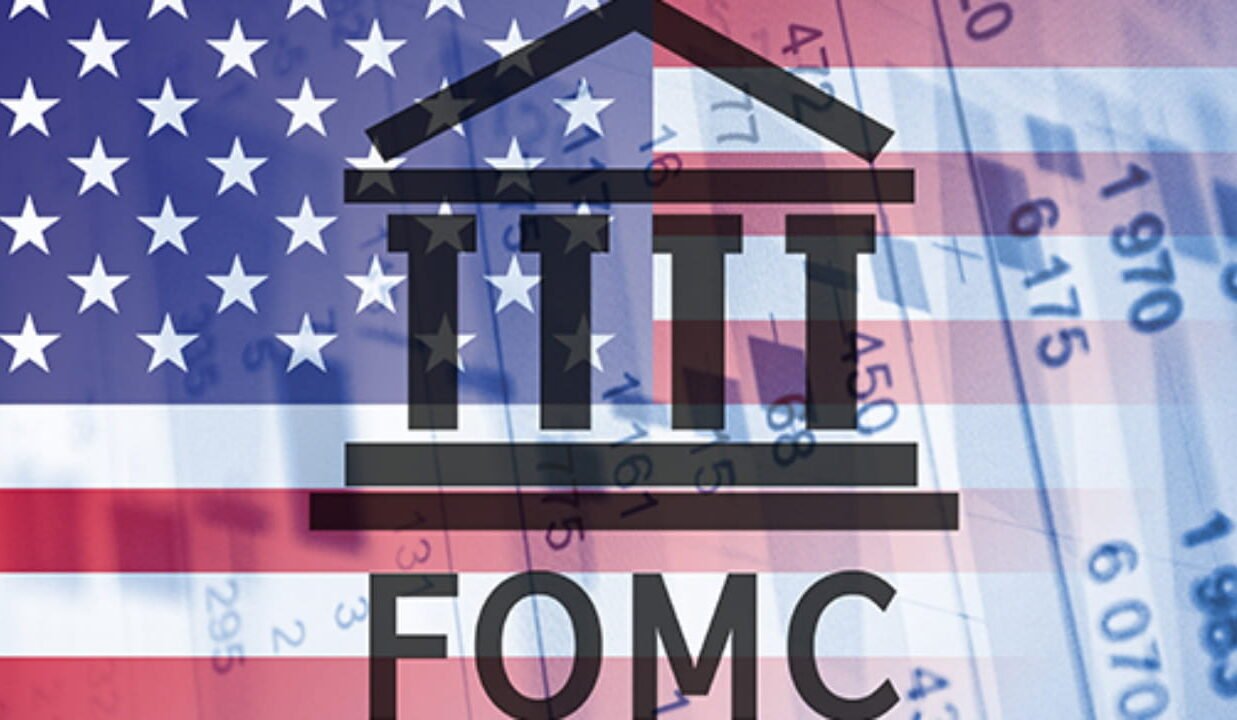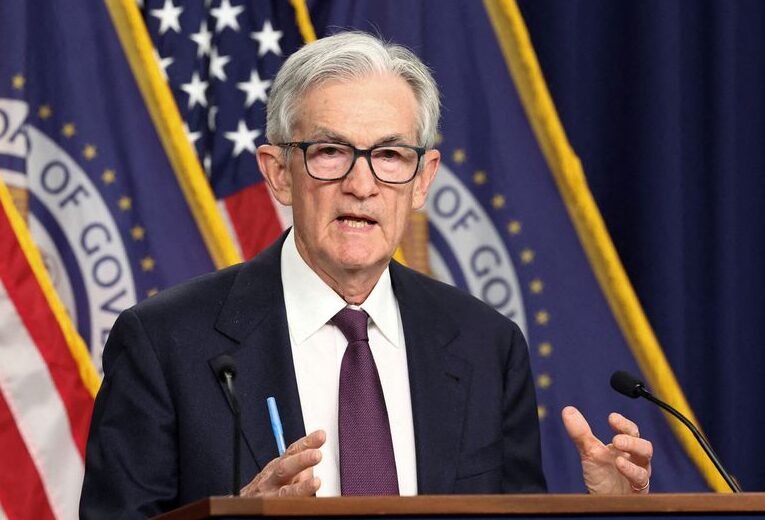FOMC minutes Fed rate cuts: Traders are aligning their bets on the U.S. Federal Reserve to initiate two interest rate reductions before the end of the year, as Wall Street prepares for the publication of the Federal Open Market Committee (FOMC) minutes. This change in attitude coincides with softening inflation figures, growing concerns about slowing economic development, and a fresh emphasis on job trends.
Under close examination in financial markets, where expectations frequently drive valuation more than reactions, is the Fed’s forward guidance. To provide a more in-depth understanding of policymakers’ ideas from their previous meeting, the next FOMC minutes could prove crucial in determining expectations for the course of U.S. monetary policy over the next three years.
Shift Toward Dovish Fed Policy Signals Cuts
Federal Reserve Chair Jerome Powell and other central bank officials reaffirmed a “higher for longer” stance just a few months ago, emphasising the need to maintain borrowing rates raised to ensure price stability. However, current socioeconomic events have led to an apparent reversal. Now, pricing indicates a strong possibility of two 25-basis-point cuts, probably starting in September, according to traders using the CME FedWatch Tool.
Although Fed officials have conflicting messages, futures contracts linked to the federal funds rate indicate a dovish turn. Treasury yields, bond markets, and the equity index, among other financial instruments, have responded appropriately. For example, the yield on the 10-year Treasury note has declined dramatically from its early-year highs, indicating a growing conviction in a more accommodative monetary policy stance.
Easing Inflation Signals Potential Fed Rate Cuts
Recent Consumer Price Index (CPI) and Personal Consumption Expenditures (PCE) data define the foundation of this changing perspective. Although core inflation remains persistent in several industries, most notably the services sector, both measures indicate a continuous disinflation trend. Still, the larger story shows that from the post-pandemic highs of 2022, inflationary pressures have dropped somewhat dramatically.

Powell and other officials have regularly said their choices are “data-dependent.” Therefore, a continuous reduction in price pressures, together with indicators of a declining labor market, might give the Fed the flexibility required to start decreasing interest rates without sacrificing its twin goals of price stability and full employment.
Labor Market Strains and Growth Forecast
The U.S. labor market is another essential component of the financial jigsaw. Although unemployment has historically slowed wage growth, new jobless claims data suggest deteriorating employment dynamics. While the economy remains strong in some areas, particularly in services and technology, other industries—including manufacturing and construction—have begun to display signs of pressure.
The Atlanta Fed’s GDPNow tracker, a highly regarded real-time economic growth indicator, has similarly lowered U.S. growth forecasts, thereby supporting more accommodative policy arguments. Any indication of economic slowing in the FOMC minutes would likely further boost expectations of two rate reductions this year.
Global Rate Cuts Intensify Pressure on the Fed
Although the Fed takes center stage, the U.S. is not the only major nation struggling with monetary policy adjustments. Already indicating the start of a rate-cutting cycle, the European Central Bank (ECB) has followed suit lately; the Bank of Canada (BoC) has also done so. These actions put further pressure on the Federal Reserve to stay competitive, particularly in light of the U.S. dollar’s rise in value relative to other currencies, therefore impairing exports.
Furthermore, influencing investor psychology is a global setting. Should the Fed be the only one maintaining tight policies, the relative economic drag may have a more significant impact on U.S. markets and consumption, thereby fueling additional calls for relaxation.
FOMC Minutes Poised to Shape Market Expectations
Approved for publication this week, the minutes from the most recent FOMC meeting will provide a comprehensive account of the central bank’s policy posture. Traders will be searching the paper for any semantic hints—that is, variations in terminology about labor market trends, inflation expectations, or the balance of risks.

Especially crucial will be whether voting members agree or disagree about future rate reduction. While a hawkish tilt may prompt a quick repricing of expectations, a dovish tone or acknowledgment of increasing downside risks to growth could validate current market pricing.
Notes warning clients to prepare for more volatility after the announcement have been released by analysts from Goldman Sachs, J.P. Morgan, and Morgan Stanley. This highlights the significant impact that minutes can have in shaping short-term trading plans for fixed income, equities, and foreign exchange markets.
Investor Shifts Amid Rate-Cut Speculation
Investors are adjusting their portfolios as bets on rate decreases gain momentum. Particularly in the tech industry, growth companies have attracted fresh interest since lower interest rates usually lower the discount rate included in valuation models, therefore increasing the attractiveness of future earnings.
Similar rising inflows are occurring with rate-sensitive assets, including high-dividend utilities and real estate investment trusts (REITs). Conversely, among the rate-cutting stories, financial companies such as commercial banks, which benefit from wider net interest margins, have underperformed. Hedge funds and proprietary trading desks are aggressively controlling exposure through derivatives and interest rate swaps; meanwhile, many are taking defensive positions ahead of the release of the FOMC minutes.
Economic Ripple Effects of the 2025 Fed
Two rate cuts in 2025 might have consequences far beyond Wall Street. Reduced borrowing could boost demand in industries susceptible to interest rate fluctuations, such as credit markets, housing, and the automotive sector. Simultaneously, geopolitics, wage stability, and more general consumer confidence determine the impact of such cuts.
Notably, Fed rate reductions typically affect credit card APRs, small business lending conditions, and mortgage rates, which in turn impact household spending and corporate capital investment. Should the Fed choose a dovish move, this might represent a significant turning point in the post-lockdown economic normalcy.
Finally
Consensus is moving toward a view of two rate cuts before year-end as markets set themselves ahead of the FOMC minutes publication. Driven by shifting inflation measures, labor market indicators, and evolving global monetary policy trends, this represents a significant departure from the start of the year.
The Federal Reserve is still wary, though, juggling the potential of slipping behind the curve against the hazards of intervening too soon. The FOMC minutes will provide a rare glimpse into this decision-making process and probably set the tone for U.S. monetary policy for the second half of the year.
A constantly shifting economic environment will determine whether the Fed finally delivers the anticipated rate decreases. One thing is sure, though: as traders adjust their expectations in one of the most under-observed monetary policy situations in decades, they will be watching every word, every sentence, and every tone change.


